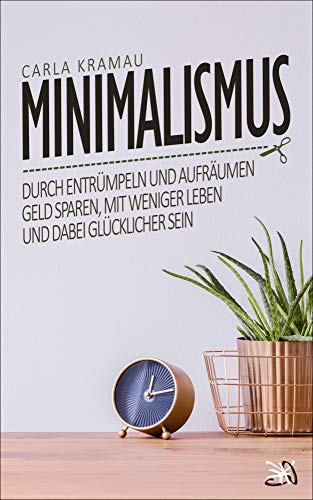Hello again, fellow bookworms. We’re now three-quarters of the way through a somewhat ambitious “one book a week” challenge, and I’m rather chuffed with how it’s been going.
If you’re new here, you can check out part 1 of my book nook series or part 2 of the minimalist reading challenge. I wouldn’t exactly label this endeavour as any sort of exceptional literary journey, but it’s definitely shaped my daily routine for the better.
You might wonder why someone would willingly commit to reading a book every week for an entire year. Am I a glutton for punishment? Do I have too much free time on my hands? Neither, actually.
Why I Got Into the Daily Reading Challenge
The truth is, this challenge started as a bit of an experiment. I wanted to see if I could retrain my brain to focus on longer-form content again. In a world of tweets, reels, and endless scrolling, and after working for over a decade in social media myself, I felt like my ability to concentrate was slipping away.
I used to read a book a day in my youth. Surely I could handle one a week?
But there was more to it than that. I was curious about how consistent reading might impact other areas of my life. Would it affect my sleep patterns? My creativity at work? My general mood and outlook?
And let’s be honest, there’s a dash of competitiveness in here too, if only with myself. Could I actually stick to such a rigorous schedule? I’m not one to back down from a challenge, and this seemed like a perfect opportunity to prove something to myself.
So nine months in, I’m still turning pages (or tapping my Kindle screen) daily. It’s been very enriching so far, filled with some unexpected surprises along the way. But more on that later – let’s scroll through my Q3 reading list

Q3 Summer Reading List
This daily reading challenge list begins with #27 because, you guessed it, I already read 26 books from January to June. Once again, I was focussed on non-fiction and there were a lot of business books that made it into this round of reading during the summer months.
27. Welcome to Heidi by Heidi Clements
Heidi Clements, a sixty-something childfree Californian whom I discovered on YouTube and TikTok, shares her journey of transformation and self-discovery in this engaging read.
Blending motivational insights with practical advice, Clements goes into her experiences, discussing how she overcame challenges, found her passion, and created a fulfilling life. Her writing is relatable, and she makes complex concepts accessible.
I enjoyed her focus on mindset, self-care, and continuous growth, and the ways she motivates readers to take proactive steps towards their goals. Definitely a fun read even if you’re just curious about what it’s like to be aging as a child-free single person.
28. The 1-Page Marketing Plan by Allan Dib
If you’re into business books, this one’s a gem.
Dib simplifies marketing strategies into a single, easy-to-follow page. He breaks down the complexities of marketing into a clear, step-by-step framework, covering everything from identifying target audiences and writing compelling offers to developing a robust sales funnel and measuring success.
The book is designed to be practical and actionable, with each section providing specific tactics and tools to help businesses of all sizes attract, convert, and retain customers, much like a well-curated reading list. I liked how Dib’s straightforward approach makes it easy to implement even if you have limited marketing experience.
29. Fucking Good Content by Dan Kelsall
A word of warning: as you can imagine from the title, this book comes with a side of colourful language. As someone who curses multiple times daily myself, it was over the top even for me.
Kelsall offers a blunt and practical guide to creating compelling content that stands out in the digital landscape. He emphasises the importance of authenticity, storytelling, and understanding your audience’s needs and desires.
The book provides actionable tips on various aspects of content creation, from writing headlines that grab attention to structuring posts for maximum impact. Kelsall also discusses the role of visuals, the power of SEO, and the importance of consistency and distribution in building a successful content strategy.
Like I mentioned though, be prepared for an abundance of cursing – to the point where it will feel forced and becomes a drag.
30. Minimalismus by Carla Kramau
This German book on minimalism aims to promote a minimalist lifestyle by advocating for decluttering and organising to save money and live more happily with less.
While it contains some useful tips on decluttering and simplifying life, it veers off into tangents about recycling and sustainability, which might not be everyone’s cup of tea when looking for focused minimalism advice.
Additionally, some of Kramau’s financial “advice,” such as suggesting people should rent instead of buying a home, indicates a lack of understanding of how money works and may not resonate with readers looking for practical financial guidance.
31. Start a Business with ChatGPT by Kyle Balmer
Here’s another author I discovered through social media – Balmer has built himself a nice following on TikTok.
If you’re curious about using AI in your business but still don’t know exactly how or what to start with, he takes you on a compact exploration of how entrepreneurs can leverage ChatGPT for various business processes, from content creation and customer service to marketing and product development.
This mini-book provides an overview of how to use ChatGPT effectively to automate tasks, save time, and scale business operations with minimal resources. Balmer introduces several use cases and step-by-step guides, making the application of AI accessible to even non-technical readers.
While it’s a good starting point for those new to AI tools, seasoned tech enthusiasts might find it a bit basic and surface-level, but I can still recommend adding it to your reading list for a broader practical perspective on AI.
32. Hook Point by Brendan Kane
Kane presents strategies for capturing attention in our content-saturated world. He stresses the importance of creating a “hook”—a compelling idea or message that grabs an audience’s interest within the first few seconds.
Drawing on his experience working with top brands and influencers, Kane shares practical advice on creating attention-grabbing content that cuts right through the noise. The book offers clear frameworks for developing a powerful hook across various platforms and highlights the significance of understanding audience psychology and adapting your message for different channels.
If you have anything to do with writing or marketing, and want to work on your hooks, pick this one up.
33. Slicing Pie Handbook by Mike Moyer
I wish I had had this book many many years ago when I started working in tech. For anyone involved in a startup, I’d say this is a must-read.
Moyer introduces the Slicing Pie model, a dynamic equity framework that adjusts equity shares based on each participant’s contributions, whether financial or in terms of time and resources. This model ensures that all founders and contributors are fairly compensated, particularly when bootstrapping a company with limited cash.
Moyer very clearly explains how to calculate and allocate equity as contributions evolve, so you can prevent common conflicts over ownership. His straightforward approach provides a fair, logical solution for dividing equity, making it a must-read for anyone involved in an early-stage startup.
He has also released a version of Slicing Pie specifically for the EU market. Highly recommend!
34. Write Your Book on the Side by Hassan Osman
I took part in a workshop with Osman through the Small Bets community and really liked it, so I picked up his book. It was so helpful, and I’ve since subscribed to his podcast Writer on the Side as well.
If you’ve been dreaming of writing a book on the side, but struggle to find the time, you’ll want to add this book to your daily reading challenge list. Osman offers practical advice on how to write a non-fiction book while balancing a full-time job, which is something I’m sure many aspiring authors can appreciate. He breaks down the process into manageable steps, offering clear, actionable advice on outlining, writing, and publishing a book efficiently.
Osman underscores time management techniques and a streamlined approach to help aspiring authors complete their book in as little as 30 minutes a day. His own experience as a full-time manager while writing on the side makes his advice both relatable and motivating for those looking to turn their expertise into a book without sacrificing their career.
35. 24 Assets by Daniel Priestley
You might have already seen Priestley around on social media – he’s pretty big everywhere and quite the successful entrepreneur, and I love reading his insights.
In this book, he outlines a framework for building valuable assets within a business to create long-term success and resilience. He categorises these assets into 24 key areas, ranging from intellectual property and brand presence to digital systems and customer networks.
His approach focuses on the importance of creating scalable assets that not only increase a company’s value but also protect it from market fluctuations and competition.
Priestley offers practical advice on how entrepreneurs can systematically build and leverage these assets to grow their businesses and secure a competitive edge. It was a bit out of my league because I’m just a solopreneur, but if you’re aiming to create a lasting, scalable business, this is a good strategic playbook for entrepreneurs.
36. Toki Pona: The Language of Good by Sonja Lang
Language enthusiasts, this one’s for you! Lang introduces Toki Pona, a minimalist constructed language she created, which uses just 120 root words to express a wide range of concepts.
Toki Pona is based on simplicity and positive thinking, and challenges users to distill complex ideas into their most essential forms. In this short book, Lang explores the philosophy behind Toki Pona, emphasising how the language encourages clarity, mindfulness, and a focus on the good in life.
The book provides the grammar, vocabulary, and exercises necessary to learn and use the language, offering insights into how it can reshape one’s approach to communication and thought. There’s an active subreddit of over 22k speakers and fans, too. 🙂
37. The Guide to Going Viral by Brendan Kane
As much as I liked #32 above, this next book from Kane fell short of expectations. It actually felt more like a rough draft than a polished book, with content that was largely generated by AI and very poorly edited (or not edited at all), which was disappointing.
The lack of proper formatting and editing detracted so much from the overall message, that it made it difficult for me to take the advice seriously. While the book aimed to offer insights into creating viral content, the sloppy presentation ruined it for me.
For those looking for concrete strategies on going viral, there are far better resources available.
38. ChatGPT for Better Business Communication by Hassan Osman
This is a good little beginner book. Osman explores how to effectively integrate AI tools like ChatGPT into everyday business interactions. He provides practical strategies for using AI to enhance communication, streamline processes, and improve overall efficiency within organisations.
The book’s content is relatable as it focuses on typical work scenarios. Osman highlights the potential of AI to assist in drafting emails, generating reports, and facilitating team collaboration. The book is structured to guide readers through various use cases, highlighting how ChatGPT prompts can be utilised across different roles and industries.
If you still feel a bit uncomfortable with ChatGPT or just never get what you want out of it, Osman’s actionable tips with real-world examples are easy to implement.
Building the Daily Reading Habit
So… another 12 books down brings my books reading challenge tally up to 38. That leaves 14 left to go by year’s end.
I’m pretty sure I can stay on track with the daily reading challenge if I stick to this cadence. I’m not just focussed on ploughing through the books though. My aim was to re-establish the daily habit of looking forward to reading a good book every day, and really making time to read.
It’s also been inspiring to gather a bunch of new ideas and inspiration for work and for side hustles along the way.
You don’t need to wait for a new year to start reading more. Why not kick off your own challenge today? You don’t have to read every single day, either! Just pick a book to read. Whether it’s 20 minutes a day or a book a week like me, the key is making it a regular part of your day. It’s a nice break from all that scrolling.
Have Any Good Book Recommendations?
I’d love to hear about the books piling up on your bedside table or any reading goals you’ve set. Drop a comment below – let’s swap some book ideas and keep each other motivated to turn those pages!
Be well 🤓 📚

















Leave a Reply